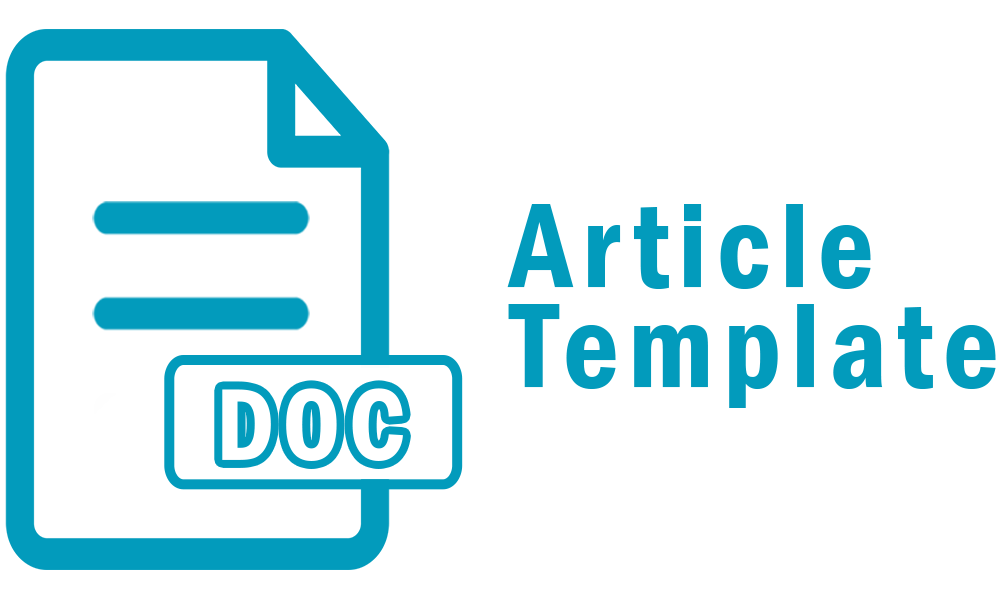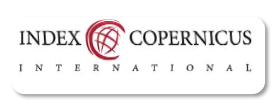SURVEI TENTANG FAKTOR-FAKTOR PENENTU KEPATUHAN MEMBAYAR ZAKAT DI MASA PANDEMI
DOI:
https://doi.org/10.22515/finalmazawa.v2i1.3350Keywords:
kepatuhan membayar zakat, religiusitas, kepercayaan, pendapatan, gender.Abstract
The Covid 19 pandemic has slowed economic growth. The addition of the new poor and the increasing number of unemployed people made the government's burden in providing assistance even heavier. Zakat as an alternative to financial instruments is expected to be an alternative to this problem. However, the potential for zakat must be improved. The main objective of this study is to examine the determinants of zakat paying compliance. This study uses religiosity, trust, income, and gender as predictor variables. This study uses a survey method in data collection. A total of 230 questionnaires were distributed to respondents in Muslim-majority areas (namely Surakarta City), of which 198 were usable. This study uses Structural Equation Modeling to analyze data. The results show that all hypotheses are supported.
Pandemi Covid 19 telah membuat pertumbuhan ekonomi menjadi melambat. Bertambahnya orang miskin baru dan semakin banyaknya pengangguran membuat beban pemerintah dalam memberikan bantuan semakin berat. Zakat sebagai alternatif instrumen keuangan diharapkan menjadi alternatif persoalan tersebut. Walaupun demikian potensi zakat masih harus ditingkatkan. Tujuan utama penelitian ini adalah untuk menguji faktor-faktor penentu kepatuhan membayar zakat. Penelitian ini menggunakan religiusitas, kepercayaan, pendapatan, dan gender sebagai variabel prediktor. Penelitian ini menggunakan metode survei dalam pengumpulan data. Sebanyak 230 kuesioner dibagikan kepada responden di wilayah mayoritas Muslim (yaitu Kota Surakarta), dari jumlah tersebut, 198 kuesioner yang dapat digunakan. Penelitian ini menggunakan Structural Equation Modelling untuk menganalisis data. Hasil menunjukan bahwa seluruh hipotesis terdukung.
Downloads
References
Abdullah, M., & Sapiei, N. S. 2018. Do religiosity, gender and educational background influence zakat compliance ? The case of Malaysia. International Journal of Social Economics, 45(8), 1250–1264. https://doi.org/10.1108/IJSE-03-2017-0091
Ahmed, H. and Md Salleh. A. M. H. A. P. 2016. Inclusive Islamic financial planning : a conceptual framework. International Journal of Islamic and Middle Eastern Finance and Management, 9(2), 170–189. https://doi.org/10.1108/IMEFM-01-2015-0006
Alleyne, P., Soleyn, S., & Harris, T. 2015. Predicting Accounting Students’ Intentions to Engage in Software and Music Piracy. Journal of Academic Ethics, 13(4), 291–309. https://doi.org/10.1007/s10805-015-9241-7
Andam, A.C., & Osman, A. Z. 2019. Determinants of intention to give zakat on employment income. 10(4), 528–545. https://doi.org/10.1108/JIABR-08-2016-0097
Aziz, M.N & Mohamad, O. B. 2016. Islamic social business to alleviate poverty and social inequality. International Journal of Social Economics, 43(6), 573–592. https://doi.org/10.1108/IJSE-06-2014-0129
Bloodgood, J. M., Turnley, W. H., & Mudrack, P. 2008. The Influence of Ethics Instruction, Religiosity, and Intelligence on Cheating Behavior. Journal of Business Ethics, 82(3), 557–571. https://doi.org/10.1007/s10551-007-9576-0
Canggih, C., Fikriyah, K., & Yasin, A. 2017. Inklusi pembayaran zakat di indonesia. Jurnal Ekonomi Dan Bisnis Islam, 3(1), 1–11.
Chourou, L. 2018. Does Religiosity Matter to Value Relevance ? Evidence from US. Banking Firms. Journal of Business Ethics, 162(3), 675–697. https://doi.org/10.1007/s10551-018-3978-z
Cronan, T. P., J. K. M. and D. E. D. 2015. Further Understanding Factors that Explain Freshman Business Students’ Academic Integrity Intention and Behavior: Plagiarism and Sharing Homework. Journal of Business Ethics, 147(3), 1–24. https://doi.org/10.1007/s10551-015-2988-3
D’Attoma, J., Volintiru, C., & Steinmo, S. 2017. Willing to share ? Tax compliance and gender in Europe and America. Research and Politics, 4(2), 1–10. https://doi.org/10.1177/2053168017707151
Darr, W. (2005). The Influence Of Religiosity And Work Status On Psychological Contracts. The International Journal of Organizational Analysis. 13(1), 89–102.
Farah Mastura, N.A. and Zainol, B. (2015). Factors Influencing Zakat Compliance Behavior on Saving Factors. International Journal of Business and Social Research, 5(1), 118–128. https://doi.org/10.18533/ijbsr.v5i1.688
Hairunnizam, W., Sanep, A. and Mohd Ali, M. N. 2007. Kesedaran Membayar Zakat Pendapatan di Malaysia. Islamiyyat, 29, 53–70.
Heikal, M, Khaddafi, M., F. 2014. The Intention to Pay Zakat Commercial : An Application of Revised Theory of Planned Behavior. 6(9), 727–734.
Huda, Nurul; Rini, Nova; Mardoni, Y. 2012. The Analysis of Attitudes, Subjective Norms , and Behavioral Control on Muzakki ’ s Intention to Pay Zakah. 3(22), 271–279.
Johnson, B. R., Jang, S. J., Larson, D. B., & Li, D. E. 2001. Does Adolescent Religious Commitment Matter? A Reexamination of the Effects of Religiosity on Delinquency. Journal of Research in Crime and Delinquency, 38(1), 22–44. https://doi.org/10.1177/0022427801038001002
Kamil, M.I. 2005, “The role of intrinsic motivation factors on compliance behavior of zakat on employment incomeâ€, in Noor, A.H.M., Baharom, H., Senin, S., Baba, A.G. and Wahab, S.A.A.(Eds), Isu-isu Kontemporari Zakat di Malaysia, 1st ed., Penerbit Universiti Teknologi Mara and Institut Kajian Zakat Malaysia, Shah Alam, pp. 137-170.
Kamil, M.I., Zainol, B. and Jaffri, R. A. 2012. Islamic Religiosity Measurement and Its Relationship with Business Income Zakat Compliance Behavior. 34, 3–10.
Liao, L., Luo, L., & Tang, Q. 2014. Gender diversity , board independence , environmental committee and greenhouse gas disclosure q. The British Accounting Review, 1–16. https://doi.org/10.1016/j.bar.2014.01.002
Martono, S., Nurkhin, A., Lutfhiyah, F., & Rofiq, A. 2019. The Relationship Between Knowledge , Trust , Intention to Pay Zakah , and Zakah-Paying Behavior. 10(2), 75–81. https://doi.org/10.5430/ijfr.v10n2p75
Mayhew, M. J., Hubbard, S. M., Finelli, C. J., & Harding, T. S. 2009. Using Structural Equation Modeling to Validate the Theory of Planned Behavior as a Model for Predicting Student Cheating Using Structural Equation Modeling to Validate the Theory of Planned Behavior as a Model for Predicting Student Cheating. 32(4), 441–468. https://doi.org/10.1353/rhe.0.0080
Mohdali, R., & Pope, J. 2014. The influence of religiosity on taxpayers ’ compliance attitudes Empirical evidence from a mixed-methods. 27(1), 71–91. https://doi.org/10.1108/ARJ-08-2013-0061
Nanji, A. A. 1985. Ethics and Taxation: The Perspective of the Islamic Tradition. Journal of Religious Ethics, 13(1), 161–178.
Nor, M.A.M., Wahid, H. and Nor, N. G. M. 2004. Kesedaran membayar zakat pendapatan dikalangan kakitangan professional Universiti Kebangsaan Malaysia. Islamiyyat, 26(2), 59–67.
Palil, M. R., Fadillah, W., & Wan, B. 2013. The Perception of Tax Payers on Tax Knowledge and Tax Education with Level of Tax Compliance : A Study the Influences of Religiosity. 1(1), 118–129.
Ram Al Jaffri, S. & Haniffa, R. 2014. Determinants of zakah (Islamic tax) compliance behavior. Journal of Islamic Accounting and Business Research, 5(2), 182–193. https://doi.org/10.1108/JIABR-10-2012-0068
Schouten, C. M. D. D. 2013. Religiosity, CSR Attitudes, and CSR Behavior: An Empirical Study of Executives ’ Religiosity and CSR. 123, 437–459. https://doi.org/10.1007/s10551-013-1847-3
Tiliouine, H., & Belgoumidi, A. 2009. An exploratory study of religiosity, meaning in life and subjective wellbeing in muslim students from Algeria. Applied Research in Quality of Life, 4(1), 109–127. https://doi.org/10.1007/s11482-009-9076-8
Torgler, B. 2006. The importance of faith : Tax morale and religiosity. 61(1), 81–109. https://doi.org/10.1016/j.jebo.2004.10.007
Wan Ahmad, W.M, W., Rahman, A. A., Seman, A. C., & Ali, N. A. (2008). Religiosity And Banking Selection Criteria Among Malays In Lembah Klang. Jurnal Syariah, 16(2), 99–130.
Watson, J., & Mcnaughton, M. 2007. Gender Differences in Risk Aversion and Expected Retirement Benefits. 63(4), 52–62.
Downloads
Submitted
Accepted
Published
How to Cite
Issue
Section
License
Copyright (c) 2021 Frank Aligarh

This work is licensed under a Creative Commons Attribution-ShareAlike 4.0 International License.




















